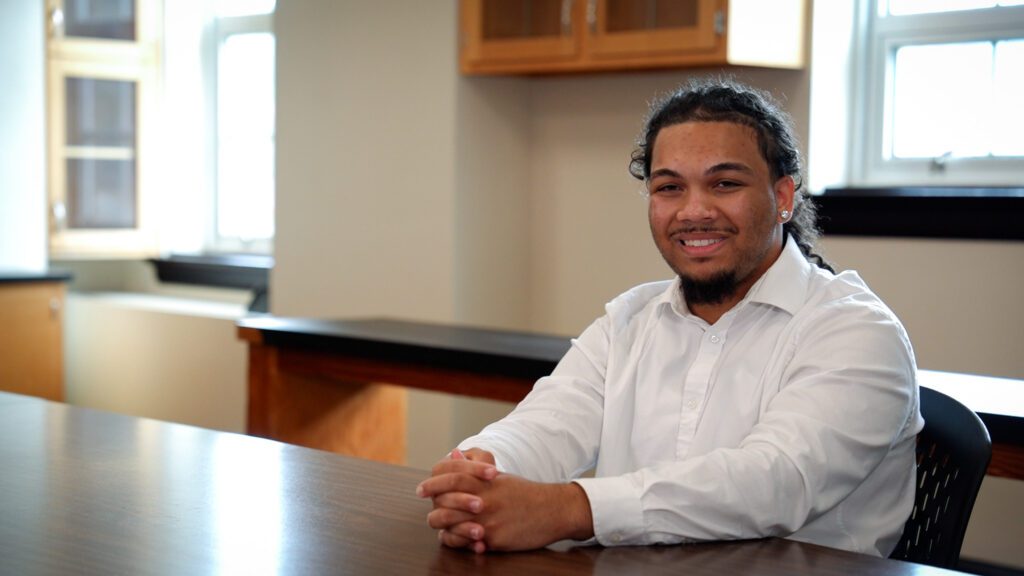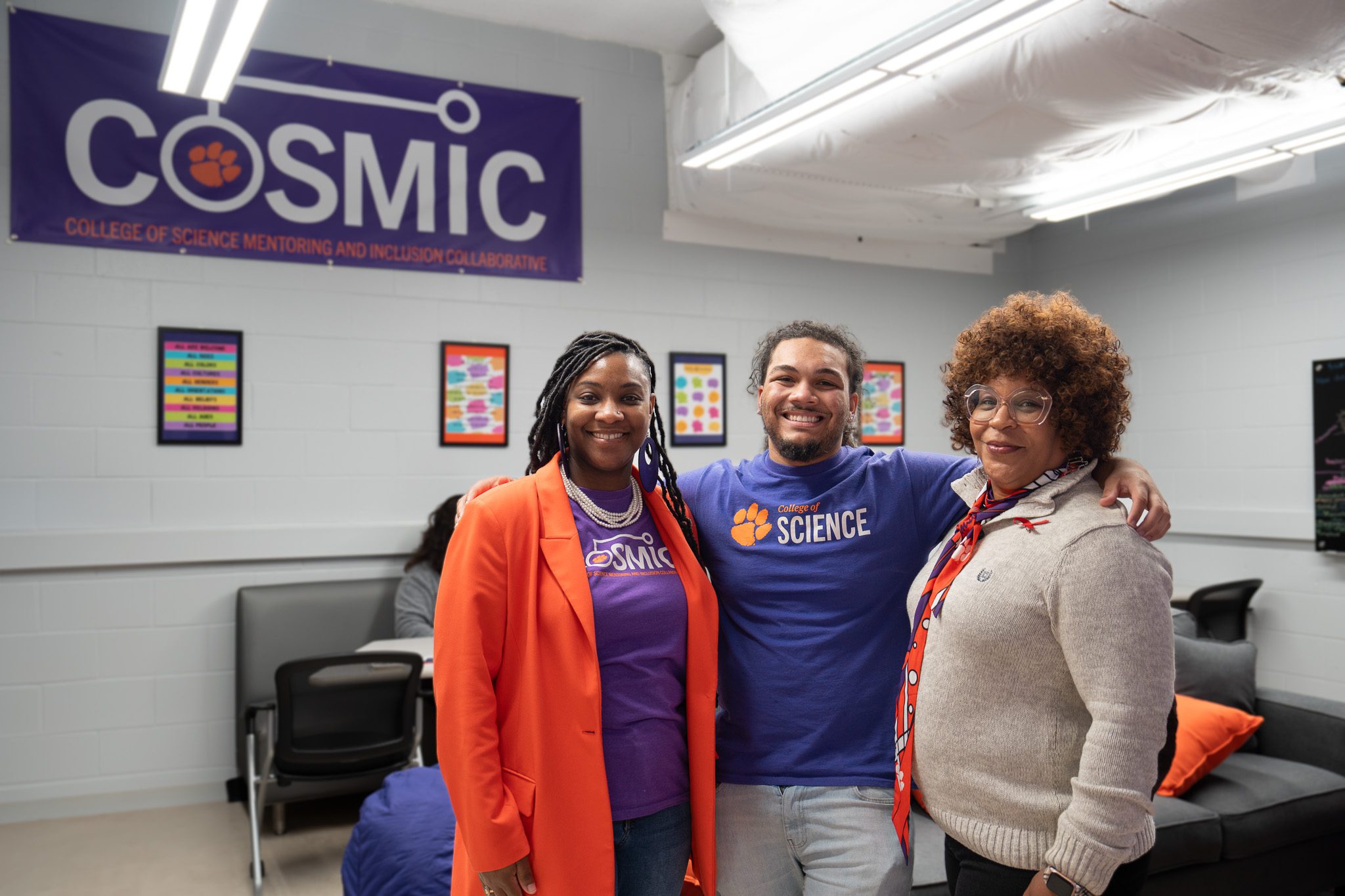Ja’Keem McKoy admits there was one main reason why he originally chose to pursue a career path as a physician.
“I’m not going to lie. It was all monetary,” he said.
Although he never went without while growing up in the small, rural South Carolina town of St. George, he remembers Googling “highest paying jobs” when he was a high school student.
“(My parents) always made sure I had clothes on my back and food on the table. They stressed to be grateful for what you had, but you always want more,” said McKoy, a first-generation college student. “I always thought you either became a lawyer, doctor or engineer to be successful and not struggle later in life.”
He liked science so, for him, doctor was the logical choice. It wasn’t until after he arrived at Clemson University as a transfer student in 2021 that McKoy discovered he had reasons other than money for his career choice — namely, to help people in his community and to be a role model for African American youth who want to pursue science and medicine.

Finding his why
“Clemson helped me find my true why,” said McKoy, who will graduate this month with a degree in biological sciences with plans to go to medical school.
“There’s a shortage of African American physicians. It didn’t really hit me when I was growing up. I always assumed physicians were white because I didn’t see a Black physician until I started volunteering at the local hospital when I was 20 years old,” he said. “It dawned on me then that there aren’t really any role models within my community to push young African American youth to go into medicine or science.”
His path to graduation wasn’t easy.
He started his college career at the College of Charleston because it was close to home. But doubts started to creep in after he did poorly on a biology test.
“I was always smart in school, but when I first got to college I wasn’t doing too well. It really impacted me negatively, and I thought about giving up, just quit school and go to work in a warehouse or find a job somewhere, get a trade,” McKoy said. “Luckily, my mom talked some sense in me. She told me I was better than that and don’t give up, at least try again.”
I want to be the role model I didn’t have.
JA’KEEM MCKOY
He decided to transfer to Charleston Southern University — and then the pandemic hit. He took his classes mostly online to allow him to help take care of his grandmother, who had Alzheimer’s disease and lived in the same home.
“It was challenging, but it made me work a little harder,” he said.
After his grandmother went to live with her daughter, McKoy decided to transfer to Clemson, a school to which he was accepted while he was in high school.
Too scared to come
“I had a good deal, but I was too scared to come,” he said. “Growing up down south, you don’t really leave home unless you become a professional. I know people who bought houses in front of their mom and dad’s place. That’s how I was growing up for the first 10 years of my life. I lived next to my grandma. But I made the decision to leave there and better myself. I’m a small town kid, but I have big city dreams.”
When he arrived at Clemson in 2021, he became involved with COSMIC (College of Science Mentoring and Inclusion Collaborative), an award-winning peer mentoring program that supports incoming students with their transition to Clemson by matching them with upperclassmen mentors who come from similar backgrounds and share similar interests. He also took advantage of Clemson’s Health Professions Advising program, to develop a path to achieve his goal.
“Environment influences a lot of things, and with me not being exposed to the medical field or having somebody in my ear telling me I could do it really affected me early on,” he said. “I realized that before coming to Clemson, I didn’t really have any role models to teach me the challenging road of becoming a physician, the hard nights of studying and just the mental struggles of it.”
Support system
Having that support system helped after his birth mother (he was adopted when he was six weeks old) was incarcerated his second year at Clemson.
“I kind of got back into my shell then. It was kind of tough to think about, but I realized there was nothing I could do,” McKoy said. “The struggles I’ve been through helped me become the man I am today. I know it makes me strong.”
Now, McKoy wants to serve as the role model he didn’t have when he started his journey.
“There’s a dire need for people like myself to be role models for young African Americans who want to go to school and pursue a career like I am,” he said. “I want to be the role model I didn’t have.”







